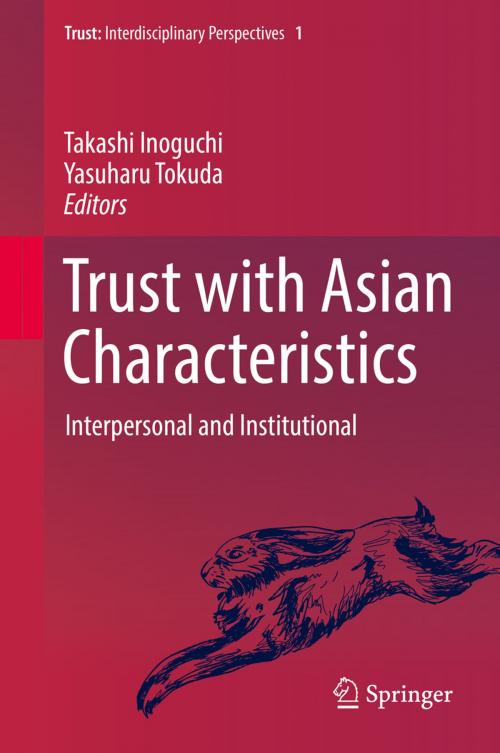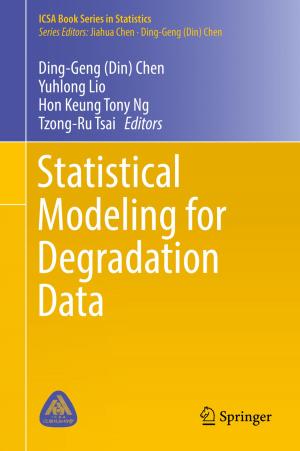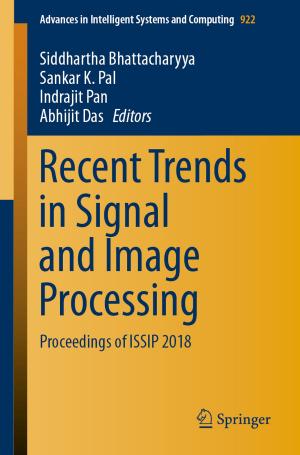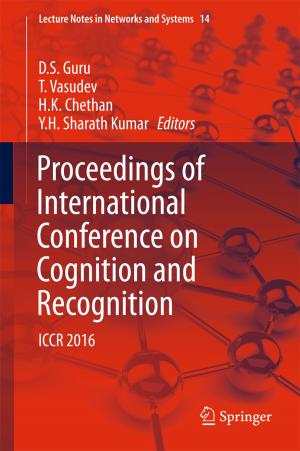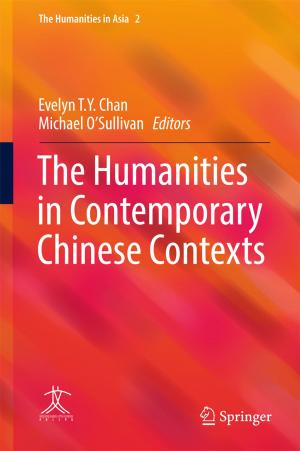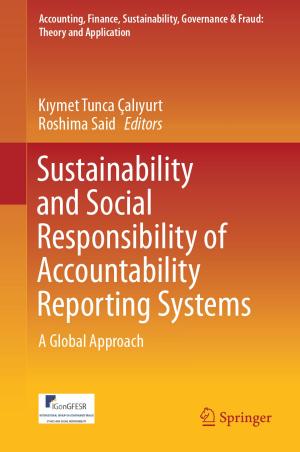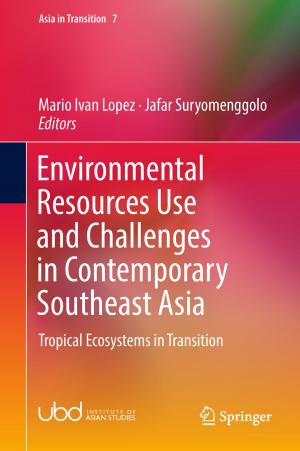Trust with Asian Characteristics
Interpersonal and Institutional
Nonfiction, Social & Cultural Studies, Social Science, Sociology, Political Science| Author: | ISBN: | 9789811023057 | |
| Publisher: | Springer Singapore | Publication: | March 14, 2017 |
| Imprint: | Springer | Language: | English |
| Author: | |
| ISBN: | 9789811023057 |
| Publisher: | Springer Singapore |
| Publication: | March 14, 2017 |
| Imprint: | Springer |
| Language: | English |
This volume, edited by a political scientist and a practicing medical doctor, is organized into two parts: interpersonal and institutional trust. To gauge trust both interpersonal and institutional in 29 Asian societies, the AsiaBarometer survey, the best—and only—available such data source in the world was used. The survey, focusing on the quality of life in Asia, was carried out in the 2000s in 29 Asian societies (in East, Southeast, South, and Central Asia), and in the United States, Australia, and Russia for comparative analysis.
Trust is a key intermediate variable linking an individual and a broader society. Yet systematically and scientifically assembled data have tended to be narrowly focused on Western societies. In the 2000s non-Western data on the quality of life have steadily increased. The AsiaBarometer survey, however, is the instrument that best examines the quality of life in a large number of Asian societies with nationwide random sampling and face-to-face interviewing, with the number of samples ranging from 1,000 to 3,000.
In gauging interpersonal trust, the question, "Generally, do you think people can be trusted, or do you think that you can't be too careful in dealing with people (i.e., that it pays to be wary of people)?" is asked along with additional questions. In measuring institutional trust, the question is asked: "How much confidence do you place in the following institutions?" (Listed are the central government, the courts, the military, the police, political parties, the parliament, mass media, business companies, medical hospitals, and other institutions.) In examining interpersonal and institutional trust Asia-wide, special attention is paid to historical and geo-cultural backgrounds of the societies being surveyed. Examination of the link between trust of mass media and individual health and between trust in medical care and individual health focuses on Japan.
Among the 12 chapters, 9 are reprints of journal articles published in the 2000s, and the introduction and 2 other chapters were written especially for this book to reflect the latest progress in the field. This work provides a rich source to be consulted by a wide range of readers interested in comparative politics, quality of life, and Asia in general.
This volume, edited by a political scientist and a practicing medical doctor, is organized into two parts: interpersonal and institutional trust. To gauge trust both interpersonal and institutional in 29 Asian societies, the AsiaBarometer survey, the best—and only—available such data source in the world was used. The survey, focusing on the quality of life in Asia, was carried out in the 2000s in 29 Asian societies (in East, Southeast, South, and Central Asia), and in the United States, Australia, and Russia for comparative analysis.
Trust is a key intermediate variable linking an individual and a broader society. Yet systematically and scientifically assembled data have tended to be narrowly focused on Western societies. In the 2000s non-Western data on the quality of life have steadily increased. The AsiaBarometer survey, however, is the instrument that best examines the quality of life in a large number of Asian societies with nationwide random sampling and face-to-face interviewing, with the number of samples ranging from 1,000 to 3,000.
In gauging interpersonal trust, the question, "Generally, do you think people can be trusted, or do you think that you can't be too careful in dealing with people (i.e., that it pays to be wary of people)?" is asked along with additional questions. In measuring institutional trust, the question is asked: "How much confidence do you place in the following institutions?" (Listed are the central government, the courts, the military, the police, political parties, the parliament, mass media, business companies, medical hospitals, and other institutions.) In examining interpersonal and institutional trust Asia-wide, special attention is paid to historical and geo-cultural backgrounds of the societies being surveyed. Examination of the link between trust of mass media and individual health and between trust in medical care and individual health focuses on Japan.
Among the 12 chapters, 9 are reprints of journal articles published in the 2000s, and the introduction and 2 other chapters were written especially for this book to reflect the latest progress in the field. This work provides a rich source to be consulted by a wide range of readers interested in comparative politics, quality of life, and Asia in general.
